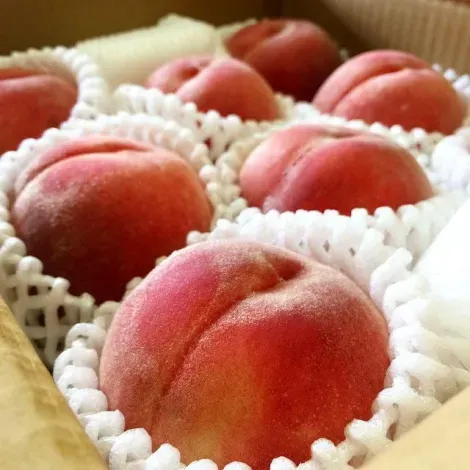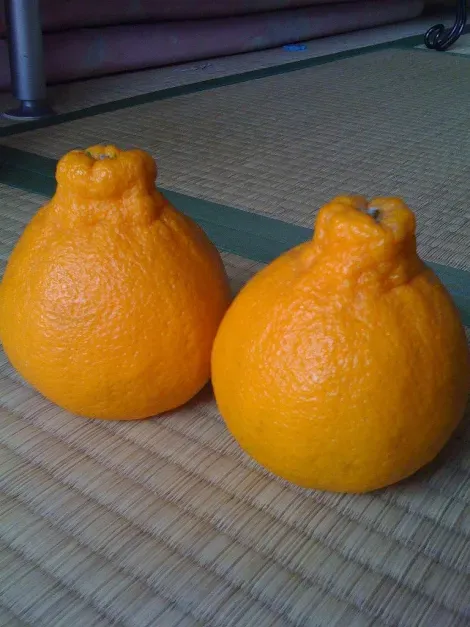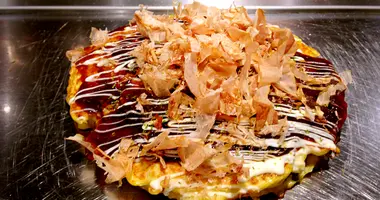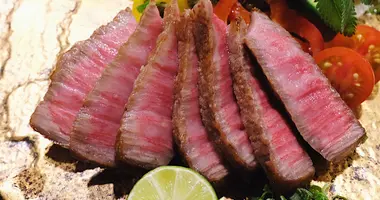Fruit culture in Japan 果物
The best gift in Japan is... a melon?
In Japan, fruits are considered a special commodity and hold a special place in society. Unlike in the West, where fruits are merely considered as the food we consume daily, in Japan considered the finest gifts! Some musk melons can cost tens of thousands of yen... Read on to discover the unique culture that Japan has built around its fruit.
Fruit: a luxury food item in Japan
In Japan, it's quite common to find the most perfect tasting fruits: perfect complexion, completely unblemished, shiny, and devilishly sweet, many Japanese fruits are also handpicked. These are considered premium luxury fruits, and there's a huge market in Japan as the demand is very high. How this came to be isn't clear, but the gifting of these luxury fruits has become a tradition in itself showing the highest of respect. You can often see the fruits as an offering to deities in temples and shrines.
Among the most luxurious fruits in Japan, the most unusual might be the cube-shaped watermelon called "square watermelon" as well as the black-skinned densuke watermelon and the yubari cantaloupe melon grown in Hokkaido - these fruits can cost up to an insane, several thousand dollars each! There is also the "Egg of the Sun" mango, which is particularly big, yellow, and sweet, the "dekopon" orange which has a lump on the top resembling a small crown, and a special variety of large grapes, the "Ruby Roman", which is cultivated only in Japan.
To read: Yubari, the abandoned town
Each luxury fruit is grown in a particular region and the variety is treated as a unique product representing its town or prefecture, considered 'authentic' only when grown there. For example, cantaloupe melon farmers in Shizuoka prefecture go so far as to issue a certificate of authenticity for their fruits, with recommendations of best consumption periods.
Fruits only produced in Japan
Apart from luxury fruit, it is of course possible to buy regular fruit at reasonable prices in Japanese supermarkets. They will, of course, be much less rare and exclaimed over the luxury fruits. But Japan, like many other countries, has its own special varieties of fruit. With its unique climate from north to south and the special techniques that have been adopted (an art that has led to the production of luxury fruits), the country boasts many succulent fruits!
To the north, one of the most famous fruit is the Aomori apple, reputed to be the best in the world. In the same fruit family, there is also the world-famous Fuji apple, which is exported internationally, the nashi pear, a well-known Japanese fruit, and also the kaki, or persimmon. The Japanese persimmon is a very popular fruit eaten both fresh and dried.
Spring fruits such as peaches, cherries, strawberries, and apricots are enjoying their moment of glory not only in supermarkets but also in Japanese sweets recipes. Some species of these fruits only exist in Japan, like the big white hakuto and shimizu peaches, the unusual white strawberries, or the satonishiki cherries cultivated in Yamagata prefecture.
In Southern Japan, many citrus fruits are grown. One of the best-known Japanese citrus varieties is mikan mandarin oranges. The islands of Kyushu and Shikoku are home to many unique Japanese citrus varieties such as kabosu, the famous yuzu, or the kumquat gaining popularity around the world.
Japanese sweets made with fruit
There are a few ways to get hold of some typical Japanese fruit. You can find the local seasonal fruits displayed along with imported fruits as well as luxury fruits. But to buy luxury fruits, the best way is to go to specialty stores like Tokyo Sembikiya or Shinjuku Takano, which has an entire wing dedicated to cantaloupe melons. Here, you can admire and purchase the most perfect melons in the world!
Sweets made with fresh fruit have become increasingly popular in recent years. One of the best-known wagashi sweets is the ichigo daifuku, where a whole strawberry is placed in the middle of a traditional daifuku. Strawberries have a romantic connotation in Japan, which makes the ichigo daifuku particularly suitable for a gift for a lover. Of course, other daifuku recipes are always emerging, and you'll find ones with small whole mandarin oranges inside, for example! There is no shortage of ideas for ways to use these wonderful fruits, much appreciated by the Japanese.
Read more: Wagashi, traditional Japanese sweets




















